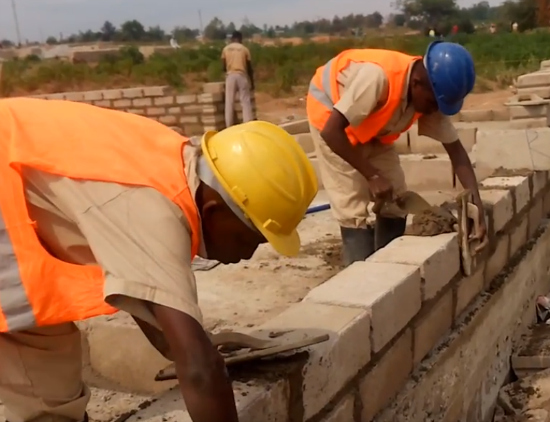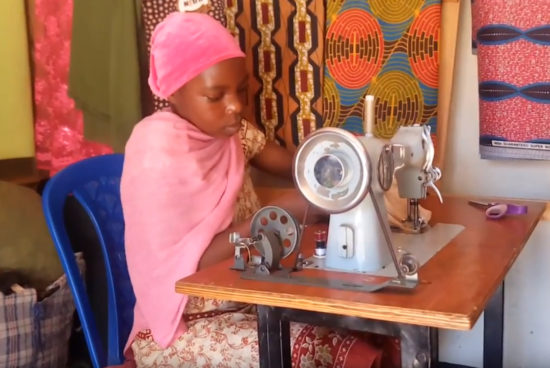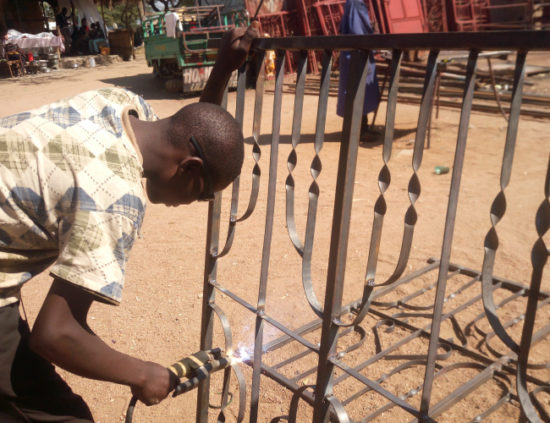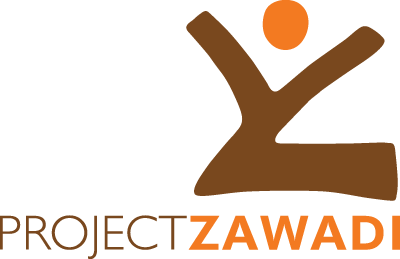The Apprenticeship Program (Programu ya Mafunzo ya ufundi)
Definitions:
Wanafunzi (noun) English translation: apprentices, trainees, students
Fundi (noun) English translation: master artisan, trade expert, scholar
Project Zawadi is proud to introduce a new path in the Student Sponsorship program: Apprenticeships!
Let’s celebrate the inaugural class of Wanafunzi!
| Masonry | Tailoring | Welding |
| Nyamshora Ibrahim | Anifa Ally | Isack Haraja |
| Mussa Juma | Suzana Mathias | Amos James |
| Sundi Manyama | Nyamgora Rashidi | |
| Riko Nyabigeso | ||
| Wamboi Zenge |
The Beginning:
PZ sponsored students expressed interest in learning a trade, practical experience, that provides future income-earning potential. In typical PZ fashion, with a student need identified, a new program emerged: The Apprenticeship Program. Supervised by PZ sponsored student alum, Benard Maziba, the Apprenticeship Program started in April 2019 with 10 students and their interests in masonry, tailoring, and welding.
Meet the Wanafunzi:
 Nyamshora Ibrahim (yellow helmet) and Mussa Juma (blue helmet) |
Masonry:
The masonry Wanafunzi are already helping build the new hospital in the Bunda District, which started in February 2019 and is expected to be completed in 2020.
|
 Anifa Ally |
Tailoring:
The tailoring Wanafunzi learned how to make dresses, shirts, and skirts. They also made 200 reusable menstruation pads for PZ students. |
 Amos James |
Welding:
The welding Wanafunzi are already making metal gates and windows to customer order specifications. They are also creating furniture such as beds and desks.
|
Finding the Right Fundi:
Wanafunzi need fundi, but not just any fundi, they need ones who can teach.

Benard’s first task was to find the fundi to match the students’ interests. He went to the communities of Nyamuswa, Bukama, & Bunda to ask for assistance in locating fundis who would be good teachers and who have plenty of work. Fundi need strong technical skills, willingness to plan a curriculum, and of course, patience.
Benard sat down with each fundi and asked them to create a plan:
- how would the program work
- how long would it take to be skillful
- what skills are needed
Once the fundis returned with a plan, the next steps were:
- making adjustments
- developing curriculum
- creating budgets
- establishing student monitoring
Curricula and budgets were finalized. Wages were negotiated. Apprentices were assigned. Everyone was ready for learning to commence!
Project Zawadi Commitment:
The goals for the Apprenticeship Program are evolving, as much is being learned from this inaugural class. PZ has committed to providing the wanafunzi the appropriate tools and clothing for each program. PZ also pays the fundi to keep the wanafunzi for a full year.
PZ is exploring solutions for some opportunities which hinder the wanafunzi’s success. Food, for some wanafunzi, is a challenge. Food from the families cannot easily be divided to send to the student. PZ is doing what it can to provide food for the wanfunzi. Additionally, the distance some wanafunzi must walk to get to Nyamuswa is quite far. When they get to the learning center, they are quite tired. Solutions for this opportunity are still being considered.
Results:
SUCCESS! GREAT, RESOUNDING SUCCESS!
The fundis and wanafunzi wholeheartedly agree at a 3-month check-in . . . the Apprenticeship Program is a great success! The wanafunzi started out a little shy but are well on their way to learning and developing the skills to create a career for themselves.
Learning from practical application is much different from what the students are accustomed. Their previous classroom work was primarily based in theory. Being able to use their hands to create and learn as they work is very different for them. The wanafunzi embraced this new idea and improve every day. Some of the wanafunzi even feel they are ready to work without supervision.
What’s Next:
According to Benard, there is only excitement for what comes next. Many more students are interested in this educational path. He envisions other vocations such as motor vehicle and motorcycle mechanics as well as driving. The model for the program can be duplicated to accommodate most any subject matter.
PZ wants to partner with Kisangwa Vocational Training Center (a government-run school) to give the students information in entrepreneurship, savings, and credit to enhance their future potential for success. Kisangwa Vocational Training Center also expressed interest in giving the students official coursework credit for their Apprenticeship Program through PZ. Both of these avenues will be pursued to give PZ students the best possible experience.
PZ Executive Director, Brian Singer, said “It is amazing to me that in such a short time we now have PZ students that are now building a hospital, making clothing and menstrual pads, and building gates and desks. Not only will these young people earn incomes with their new skills, but they are performing important services for their community. I do expect that we’ll venture into new trades, such as hair styling, plumbing, electrical, agricultural businesses and food businesses. We will need to get good at teaching entrepreneurship because some of these students will ultimately be starting their own business. It will be exciting to see former apprenticeship students become mentors for younger apprentices.”
To Celebrate Universal Children’s Day this week on Wednesday, November 20, please consider a contribution to our Annual Campaign. All gifts made, post-marked or pledged by Wednesday, November 20 will be eligible for at 35% match.
Please be as generous as you can so that, together, we can offer our students more opportunities like those being offered in our Apprenticeship Program!
~Written by Dawn Wood, Project Zawadi Volunteer
